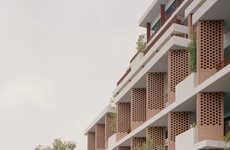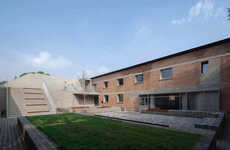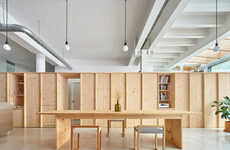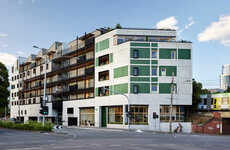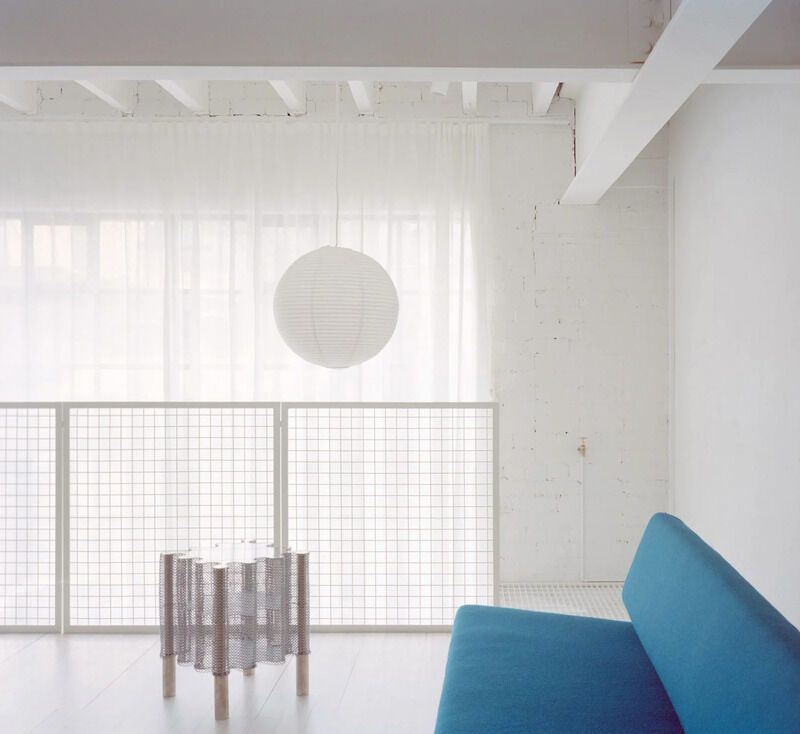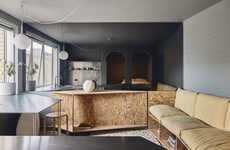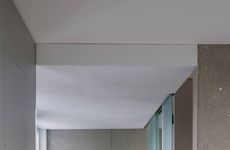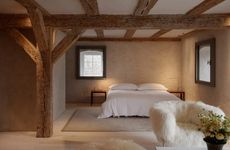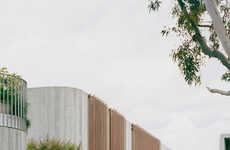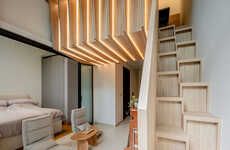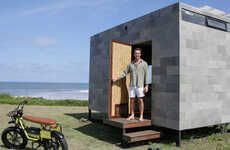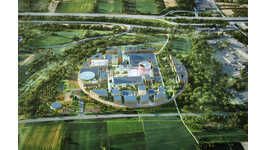
SSdH Unveils the Design of Kerr in an Old Chocolate Factory
Amy Duong — April 6, 2023 — Art & Design
References: dezeen
Local design studio SSdH designed the Kerr, which is a split-level warehouse apartment in a mezzanine style. It is accented by eclectic furniture and can be found in an old chocolate factory in Melbourne before being converted to residential units during the 90s. It boasts a contemporary design as explained by studio director Jean-Marie Spencer.
The studio adds double glazing to the large factory window that was already existing in order to allow for both thermal and acoustic benefits. Spencer speaks about this, noting that "This glazing, along with the thermal mass embodied within the heavy masonry building allowed the apartment to remain un-airconditioned, relying on passive cross ventilation from the shared building lobby to maintain temperatures and reduce energy consumption,"
Image Credit: SSdH
The studio adds double glazing to the large factory window that was already existing in order to allow for both thermal and acoustic benefits. Spencer speaks about this, noting that "This glazing, along with the thermal mass embodied within the heavy masonry building allowed the apartment to remain un-airconditioned, relying on passive cross ventilation from the shared building lobby to maintain temperatures and reduce energy consumption,"
Image Credit: SSdH
Trend Themes
1. Split-level Warehouse Apartments - The trend of converting old industrial buildings into urban residential spaces is growing, creating the potential for innovative designs and sustainable living options.
2. Eclectic Furniture - The trend of incorporating unique and unconventional furniture pieces into residential designs is on the rise, presenting opportunities for disruptive startups to offer personalized and sustainable furniture solutions.
3. Passive Ventilation - The trend of relying on passive ventilation as a primary method for cooling and heating residential spaces is gaining popularity, creating a need for innovative building materials and designs that prioritize sustainability and energy efficiency.
Industry Implications
1. Real Estate - The real estate industry can capitalize on the trend of converting old industrial buildings into residential spaces, creating new opportunities for urban development and community building.
2. Furniture - The furniture industry can leverage the trend of incorporating unconventional furniture designs into residential spaces by offering innovative, eco-friendly, and customizable furniture solutions.
3. Construction - The construction industry can innovate in the area of sustainable and energy-efficient building materials and designs that prioritize passive ventilation as a primary method for cooling and heating residential spaces, creating disruptive solutions for the emerging green building market.
2.1
Score
Popularity
Activity
Freshness


